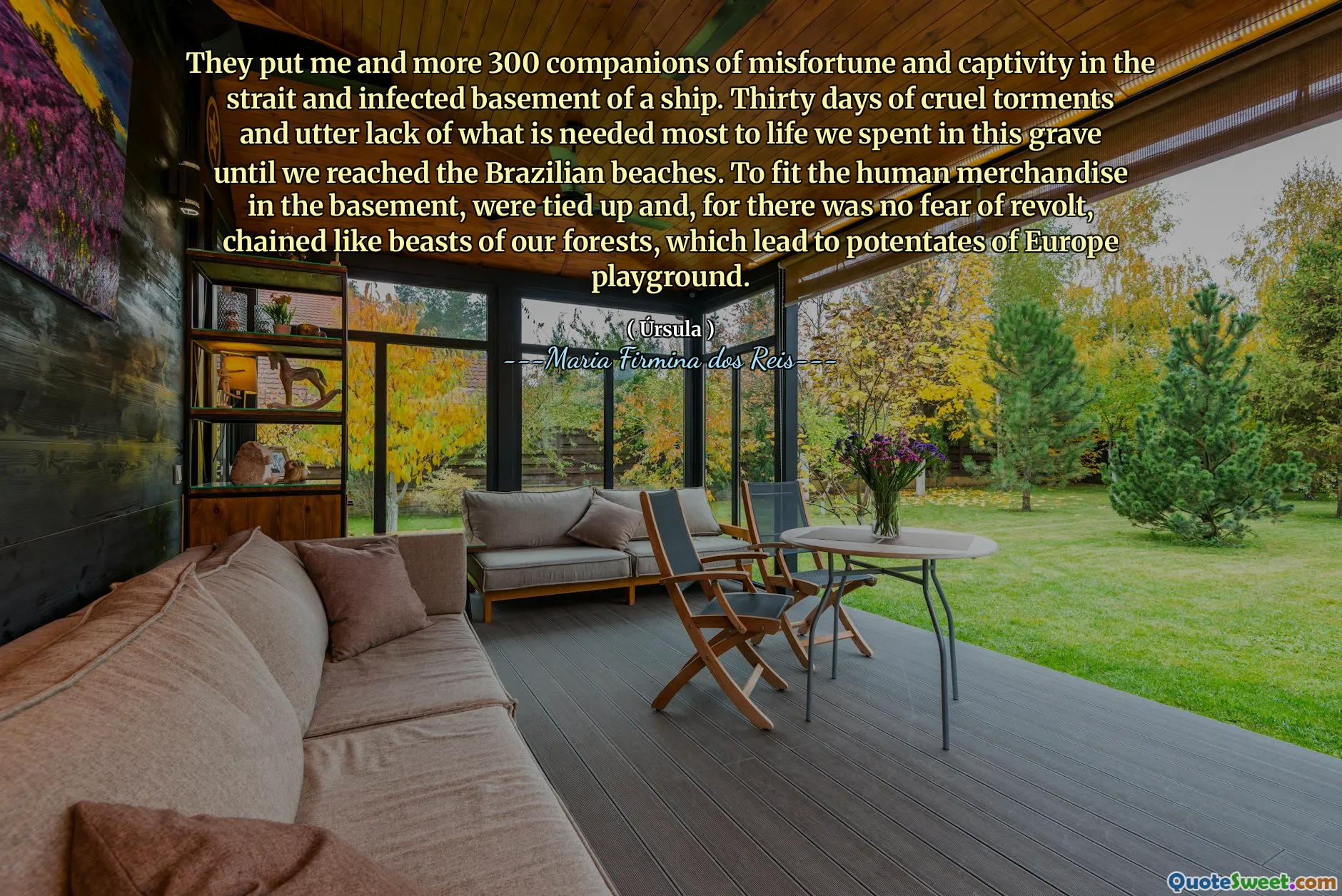
They put me and more 300 companions of misfortune and captivity in the strait and infected basement of a ship. Thirty days of cruel torments and utter lack of what is needed most to life we spent in this grave until we reached the Brazilian beaches. To fit the human merchandise in the basement, were tied up and, for there was no fear of revolt, chained like beasts of our forests, which lead to potentates of Europe playground.
[Markdown format] The quote vividly depicts the harrowing experience of individuals subjected to inhumane conditions during their forced passage. It paints a stark picture of suffering, dehumanization, and the brutal realities faced by those trafficked or enslaved. The portrayal of being confined in a "strait and infected basement" emphasizes the filthy and unsafe environment, while the "thirty days of cruel torments" underscores the prolonged agony endured without respite.
This account invites reflection on the historical and ongoing issues of human trafficking, slavery, and the exploitation of vulnerable populations. The imagery of chained individuals, likened to beasts, not only dehumanizes but also serves as a reminder of how systemic violence strips away individual dignity and renders humans into commodities. The mention of "human merchandise" and being chained for transport points to the commodification inherent in slavery.
The destination—Brazilian beaches—historically signifies a port of arrival for many enslaved Africans, symbolizing both the culmination of a long, traumatic journey and the beginning of a life marked by exploitation. Such stories are fundamental in understanding the brutal mechanisms of the transatlantic slave trade and the resilience of those who endured such horrors.
Reflecting on this quote prompts us to consider the importance of historical memory and social justice. It reminds us of the cruelty humans have inflicted on one another under the guise of economic or political gain and emphasizes the necessity for ongoing efforts to combat modern forms of slavery and human rights abuses. These narratives are critical for fostering empathy, awareness, and a commitment to human dignity.
--- (Úrsula) --- Maria Firmina dos Reis ---






